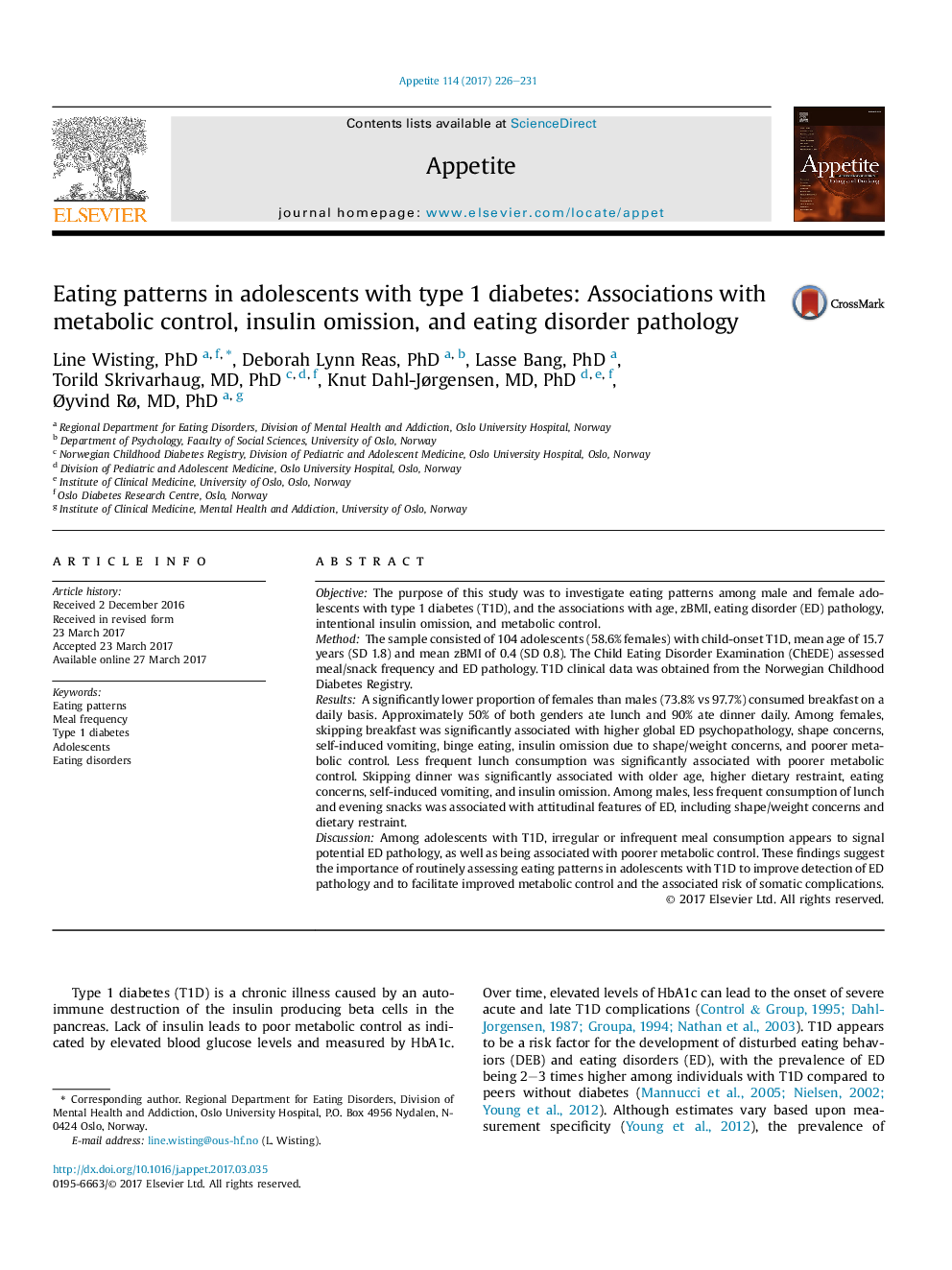| Article ID | Journal | Published Year | Pages | File Type |
|---|---|---|---|---|
| 5044315 | Appetite | 2017 | 6 Pages |
ObjectiveThe purpose of this study was to investigate eating patterns among male and female adolescents with type 1 diabetes (T1D), and the associations with age, zBMI, eating disorder (ED) pathology, intentional insulin omission, and metabolic control.MethodThe sample consisted of 104 adolescents (58.6% females) with child-onset T1D, mean age of 15.7 years (SD 1.8) and mean zBMI of 0.4 (SD 0.8). The Child Eating Disorder Examination (ChEDE) assessed meal/snack frequency and ED pathology. T1D clinical data was obtained from the Norwegian Childhood Diabetes Registry.ResultsA significantly lower proportion of females than males (73.8% vs 97.7%) consumed breakfast on a daily basis. Approximately 50% of both genders ate lunch and 90% ate dinner daily. Among females, skipping breakfast was significantly associated with higher global ED psychopathology, shape concerns, self-induced vomiting, binge eating, insulin omission due to shape/weight concerns, and poorer metabolic control. Less frequent lunch consumption was significantly associated with poorer metabolic control. Skipping dinner was significantly associated with older age, higher dietary restraint, eating concerns, self-induced vomiting, and insulin omission. Among males, less frequent consumption of lunch and evening snacks was associated with attitudinal features of ED, including shape/weight concerns and dietary restraint.DiscussionAmong adolescents with T1D, irregular or infrequent meal consumption appears to signal potential ED pathology, as well as being associated with poorer metabolic control. These findings suggest the importance of routinely assessing eating patterns in adolescents with T1D to improve detection of ED pathology and to facilitate improved metabolic control and the associated risk of somatic complications.
